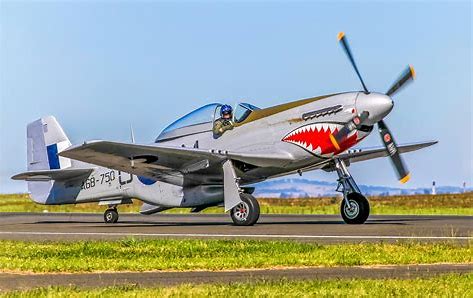
In the darkest times of World War II, with global peace hanging in the balance, the North American P-51 Mustang rose as a symbol of hope and became a pivotal asset for the Allies.
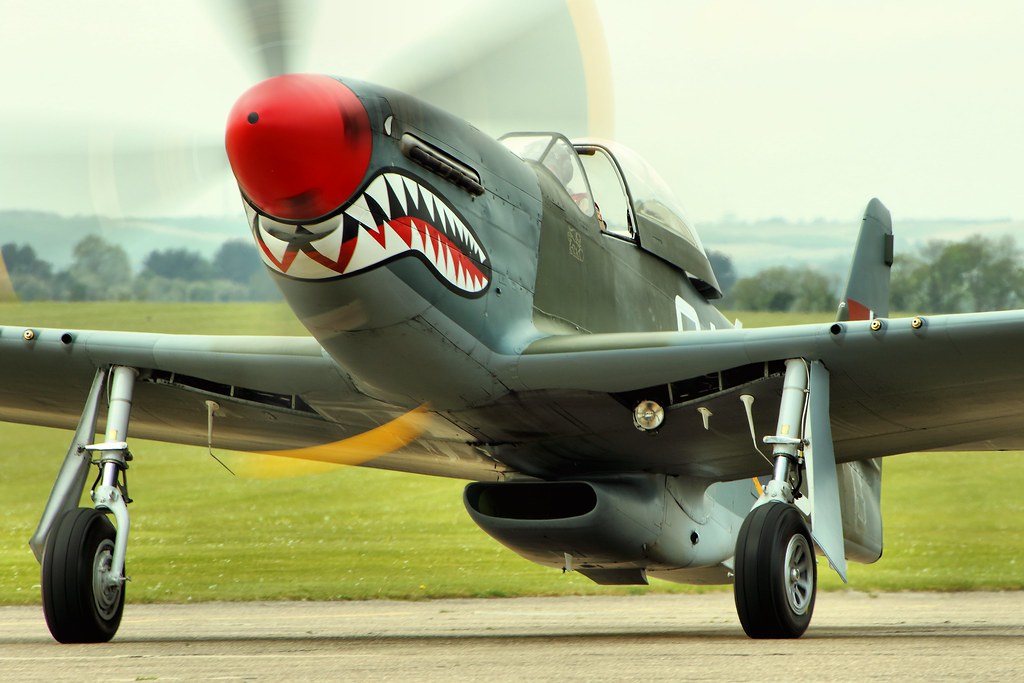
The introduction of the Rolls-Royce Merlin engine, a remarkable feat of engineering, transformed the P-51 Mustang into a legendary fighter aircraft, marking a pivotal turn in the war’s aerial battles.
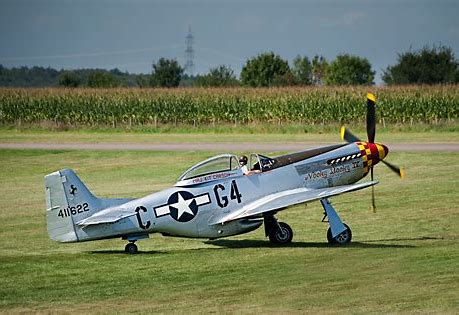
Amidst the bloody conflict, a group of exceptional pilots, the Tuskegee Airmen, notably the 332nd Fighter Group, soared into history, flying the Mustang with outstanding courage and skill.
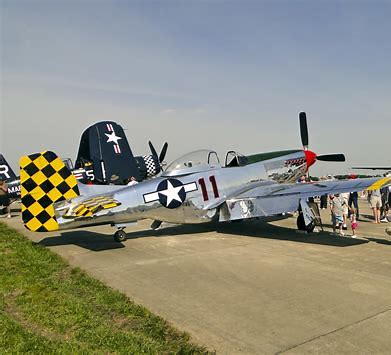
The significant upgrade of the P-51 Mustang began when it was paired with the Rolls-Royce Merlin engine, leading to the development of the P-51D model.
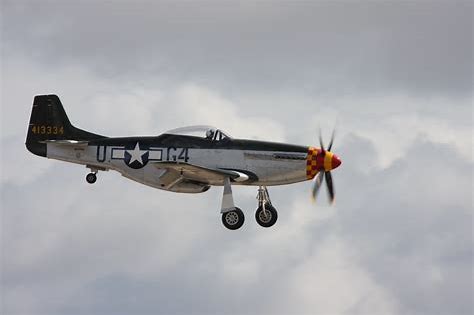
This model was a high-performance, high-altitude, long-range fighter that could escort heavy bomber formations to targets deep within enemy territory and safely back.
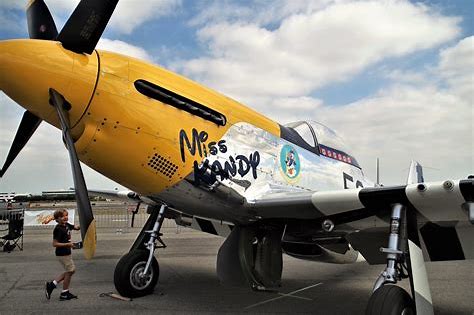
The adaptation was spurred by Lt. Col. Thomas J. Hitchcock Jr., who, after observing British test flights, advocated forcefully for the switch to the Merlin engine. The results were indeed “nothing short of astounding.”
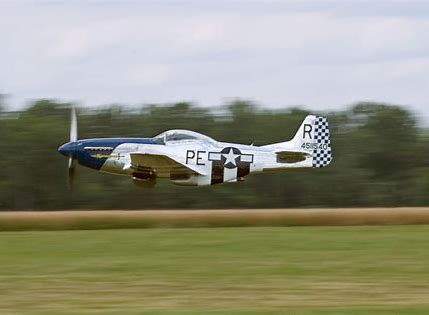
The Merlin engine-powered Mustangs achieved speeds in excess of 430 miles per hour at 30,000 feet, a significant increase from the earlier Allison engine, and the US Army Air Forces placed an immediate order for 2,200 of the new P-51Bs.
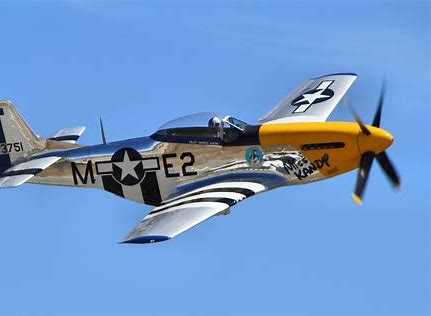
By early 1944, the Mustang had started to alter the dynamics of the air war. The aircraft proved its mettle during “Big Week” in February 1944, a critical campaign aimed at crippling German fighter production.
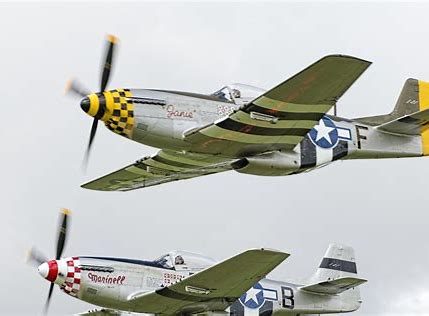
Mustang pilots were instrumental in decimating 17 percent of the Luftwaffe’s fighter pilots, a blow from which the German air force never fully recovered. Such feats played an indispensable role in setting the stage for the successful invasion of Normandy in June 1944.
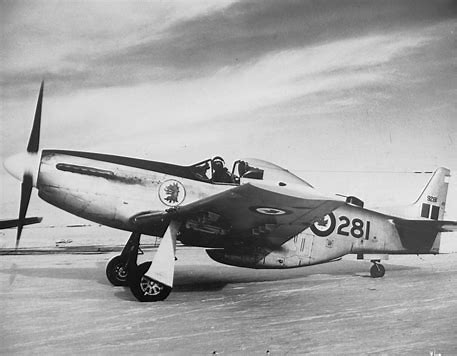
On the wings of these powerful fighters, the Tuskegee Airmen of the 332nd Fighter Group, etched their names in history.
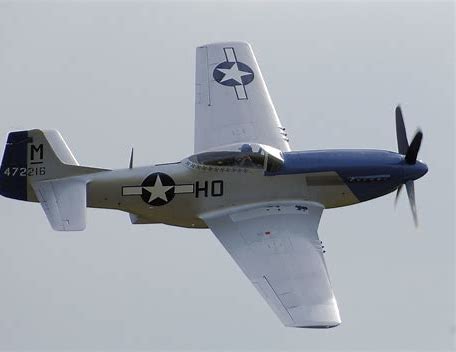
From 1941 to 1946, approximately 1,000 African American pilots were trained at the segregated Tuskegee airbase in Alabama.
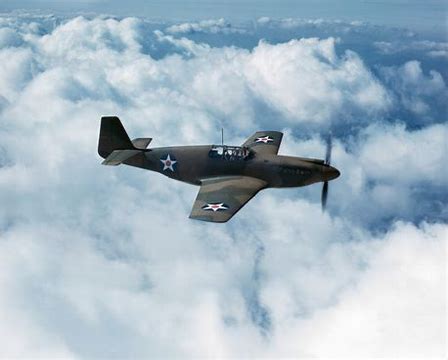
They flew the P-51 Mustangs with distinctive “Red Tails,” a moniker derived from the red-painted tails of their aircraft. The Tuskegee Airmen flew over 15,000 sorties and were pivotal in fostering the eventual Allied victory, all while facing the double challenge of fighting enemy forces and racial discrimination.
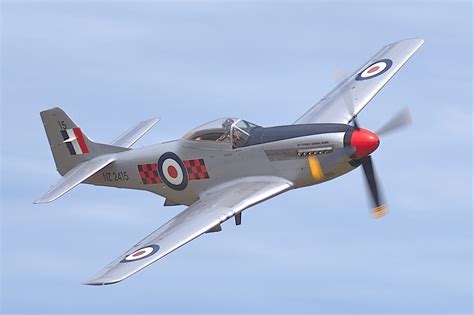
The Mustang’s operational range was also exceptional, thanks to the addition of external fuel tanks. The P-51 could escort B-17 and B-24 bombers on deep penetration raids into Germany, a capability that was once sorely missing. The bomber crews, who had previously suffered devastating losses, could now count on the Mustang’s protective presence throughout their perilous missions.
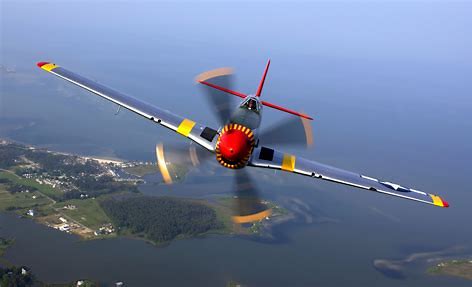
It’s essential to acknowledge the foresight of individuals like Lt. Col. Hitchcock, without whom the Mustang might never have achieved its full potential. His report in the fall of 1942 set in motion the development that would lead to the Allied air forces gaining superiority in the skies.
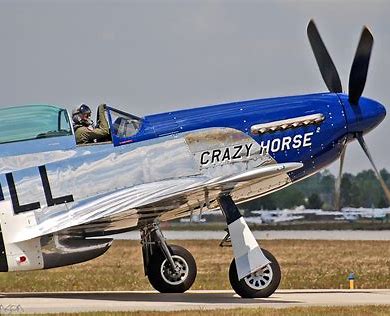
Tragically, Hitchcock did not live to see the full impact of his efforts. He perished on April 18, 1944, during a test flight, but his legacy is indelibly linked to the P-51 Mustang and the air dominance it secured.
Relevant articles:
– North American P-51 Mustang, The National WWII Museum | New Orleans
– P-51 Mustang | Facts, Specifications, & History, britannica.com
– P-51 Mustang: First flight of an Icon, jbsa.mil
